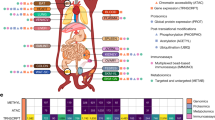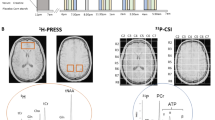Abstract
Objective: To determine the relationships between cognitive function and iron status in dieting obese women.
Design: Longitudinal weight loss study (repeated measures within-subject design) with 3 weeks of baseline, 15 weeks of 50% caloric restriction, and 3 weeks of weight stabilization. Dietary iron was fed at twice the US Recommended Dietary Allowance with half of the iron from food sources and half from an oral supplement.
Setting: This was a free-living study with the exception that subjects came to the research center for one meal per day and were provided all other meals and snacks to take home.
Subjects: Healthy, premenopausal, obese women (mean BMI=31.5) were recruited through local newspaper, poster and radio advertising. Twenty-four women volunteers were recruited and 14 completed the study.
Measurements: Cognitive function, iron and hematological status, height, body weights and body composition were measured at baseline; at weeks 5, 10, and 15 of the energy restriction period; and at the end of weight stabilization. Computerized cognitive tests included: Bakan vigilance task, two finger tapping, simple reaction time, immediate word recall, and a focused attention task. Iron status and hematological measures included: serum iron, total iron binding capacity (TIBC), transferrin saturation, serum ferritin, hemoglobin (Hb), hematocrit, red cell count, MCV, MCH, MCHC, and RDW.
Results: A significant reduction in Hb, hematocrit, and red blood cell count occurred across the study. Hb at the end of the study was positively correlated (r=0.72, P<0.01) with mean performance on a measure of sustained attention. Transferrin saturation also correlated positively to sustained attention task performance for those subjects whose Hb declined across the study (r=0.86, P<0.01).
Conclusions: These findings suggest that dieting diminishes iron status in obese women, even when sufficient dietary iron is available, and that the inability to sustain attention may be an early sign of developing iron deficiency in dieting women.
Sponsorship: Funding provided by US Department of Agriculture, Agricultural Research Service.
This is a preview of subscription content, access via your institution
Access options
Subscribe to this journal
Receive 12 print issues and online access
$259.00 per year
only $21.58 per issue
Buy this article
- Purchase on Springer Link
- Instant access to full article PDF
Prices may be subject to local taxes which are calculated during checkout
Similar content being viewed by others
Author information
Authors and Affiliations
Rights and permissions
About this article
Cite this article
Kretsch, M., Fong, A., Green, M. et al. Cognitive function, iron status, and hemoglobin concentration in obese dieting women. Eur J Clin Nutr 52, 512–518 (1998). https://doi.org/10.1038/sj.ejcn.1600598
Received:
Revised:
Accepted:
Published:
Issue Date:
DOI: https://doi.org/10.1038/sj.ejcn.1600598
Keywords
This article is cited by
-
Iron states and cognitive abilities in young adults: neuropsychological and neurophysiological assessment
European Archives of Psychiatry and Clinical Neuroscience (2008)



